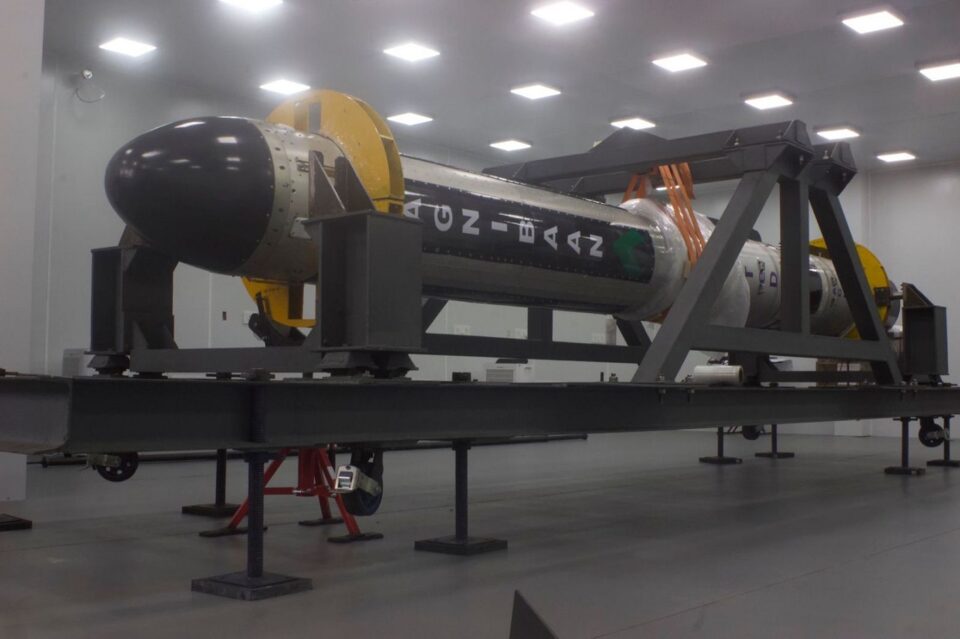Verghese V Joseph –
In a significant development for India’s burgeoning private space industry, Agnikul Cosmos, a Chennai-based space startup, successfully launched its Agnibaan SOrTeD (SubOrbital Technological Demonstrator) rocket at 7.15 am on May 30, 2024. The mission, which lasted approximately two minutes, marked a major achievement for the company and the country in the development of indigenous space technology.
Agnikul Cosmos, co-founded by Srinath Ravichandran and Moin SPM, had a perfect launch this morning despite a couple of last-minute setbacks in the past few days. This was the fifth attempt to launch the rocket after four launch plans were aborted due to technical glitches.
The Indian Space Research Organisation (ISRO) has announced that the Chennai based start-up successfully launched the rocket at 7.15 am. ISRO chairman S Somanath confirmed to NDTV that the launch was “successful”. ISRO) termed it “a major milestone, as the first-ever controlled flight of a semi-cryogenic liquid engine realized through additive manufacturing.”
The Agnibaan SOrTeD is a single-stage launch vehicle powered by a semi-cryogenic 3D-printed engine called Agnilet, the world’s first single-piece 3D-printed semi-cryogenic rocket engine. The 6.2-meter-tall rocket, equipped with advanced avionics architecture and autopilot software developed in-house, lifted off from India’s first private launchpad, ALP-01, located at the Satish Dhawan Space Centre in Sriharikota.
The successful launch of SOrTeD, which was initially scheduled for April 7 but postponed due to technical glitches, achieved three significant milestones:
- Demonstrating India’s first launch from a private launchpad (Agnikul Launch Pad in Sriharikota named Dhanush)
- Showcasing the country’s first semi-cryogenic engine-powered rocket launch
- Utilizing the first single-piece 3D-printed engine designed and built domestically to power a launch vehicle
The mission included a series of precise maneuvers, such as a pitch-over maneuver and wind biasing, before splashing down in the Bay of Bengal. The key purpose of the SOrTeD mission was to serve as a test flight, demonstrating in-house and homegrown technologies, gathering crucial flight data, and ensuring optimal functioning of systems for the Agnibaan launch vehicle.
The Agnibaan rocket, entirely designed in-house in India and assembled at Agnikul’s facilities within IIT Madras, boasts the capability to transport up to 300 kg to a 700 km high orbit. This makes it a highly customizable and capable launch vehicle, targeting the multi-billion-dollar small satellite launch market.
Satya R Chakravarty, a professor from IIT Madras and a mentor for Agnikul, too, said the launch from Sriharikota was successful.
“Humbled to announce the successful completion of our first flight – Mission 01 of Agnibaan SOrTeD – from our own and India’s first & only private Launchpad within SDSC-SHAR at Sriharikota. All the mission objectives of this controlled vertical ascent flight were met and performance was nominal. The vehicle was completely designed in-house and was powered by the world’s first single piece 3d printed engine and also happens to be India’s first flight with a semi cryo engine,” Agnikul said in a statement after the successful launch.
“Our greatest thanks to @INSPACeIND @isro @iitmadras & our incredibly committed team in helping us prove that a private player can design and fly original space tech hardware in India. #madeInIndiaForTheWorld,” the statement added.
Lt Gen (retd) AK Bhatt, director general of the Indian Space Association (ISpA), stated that the mission is a “huge boost and a proud moment for India’s thriving private space industry and just a glimpse into what the future holds for us.” He added that this significant launch, coupled with the recently introduced guidelines for the implementation of the Indian Space Policy 2023 by IN-SPACe and the new FDI regulations, will undoubtedly bolster global confidence in India’s private space industry and its growing capabilities.
Agnikul Cosmos, which operates India’s first privately-owned launch pad, aims to use the Agnibaan launch as a technology demonstrator to validate their technologies for future commercial launches.
According to the manifesto of IN-SPACe, the space regulator, Agnikul Cosmos is anticipated to embark on commercial missions in Q3 of FY 2024-2025, with further launches expected in Q4 of FY 2024-2025.
The successful launch of the Agnibaan SOrTeD rocket marks a significant milestone for Agnikul Cosmos and the Indian space industry as a whole. It showcases the capabilities of India’s private space startups and their ability to develop cutting-edge technologies, such as 3D-printed semi-cryogenic engines, that can compete on a global scale. As India continues to foster an environment conducive to the growth of private space companies, the success of Agnikul Cosmos serves as a testament to the immense potential of the country’s space sector.

